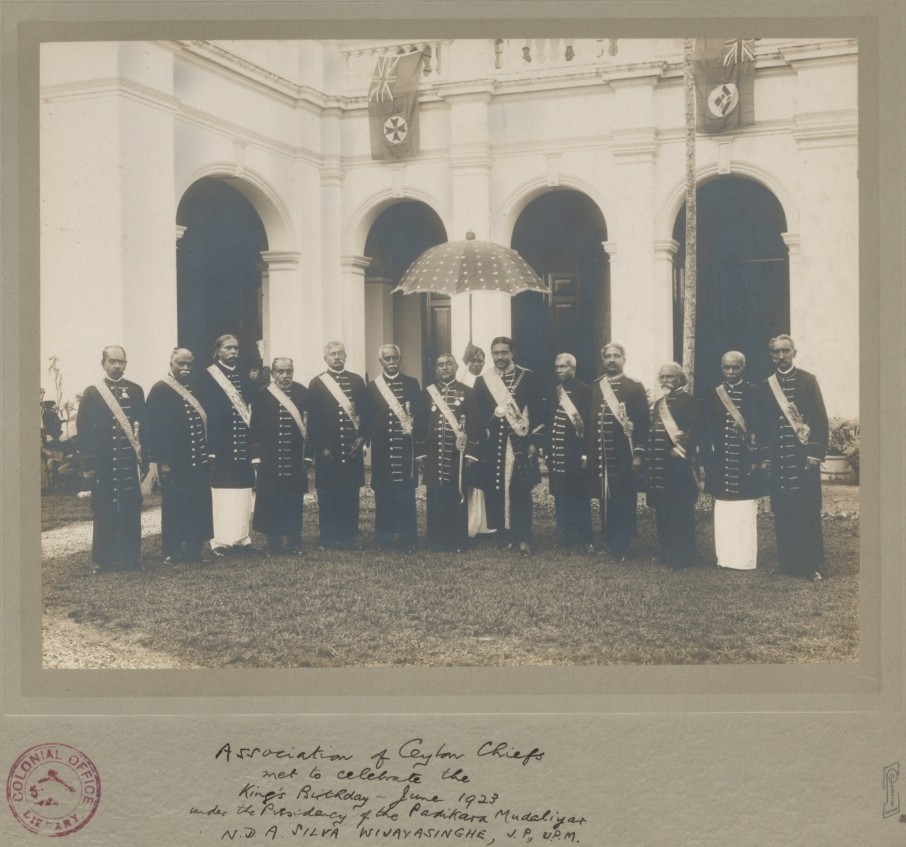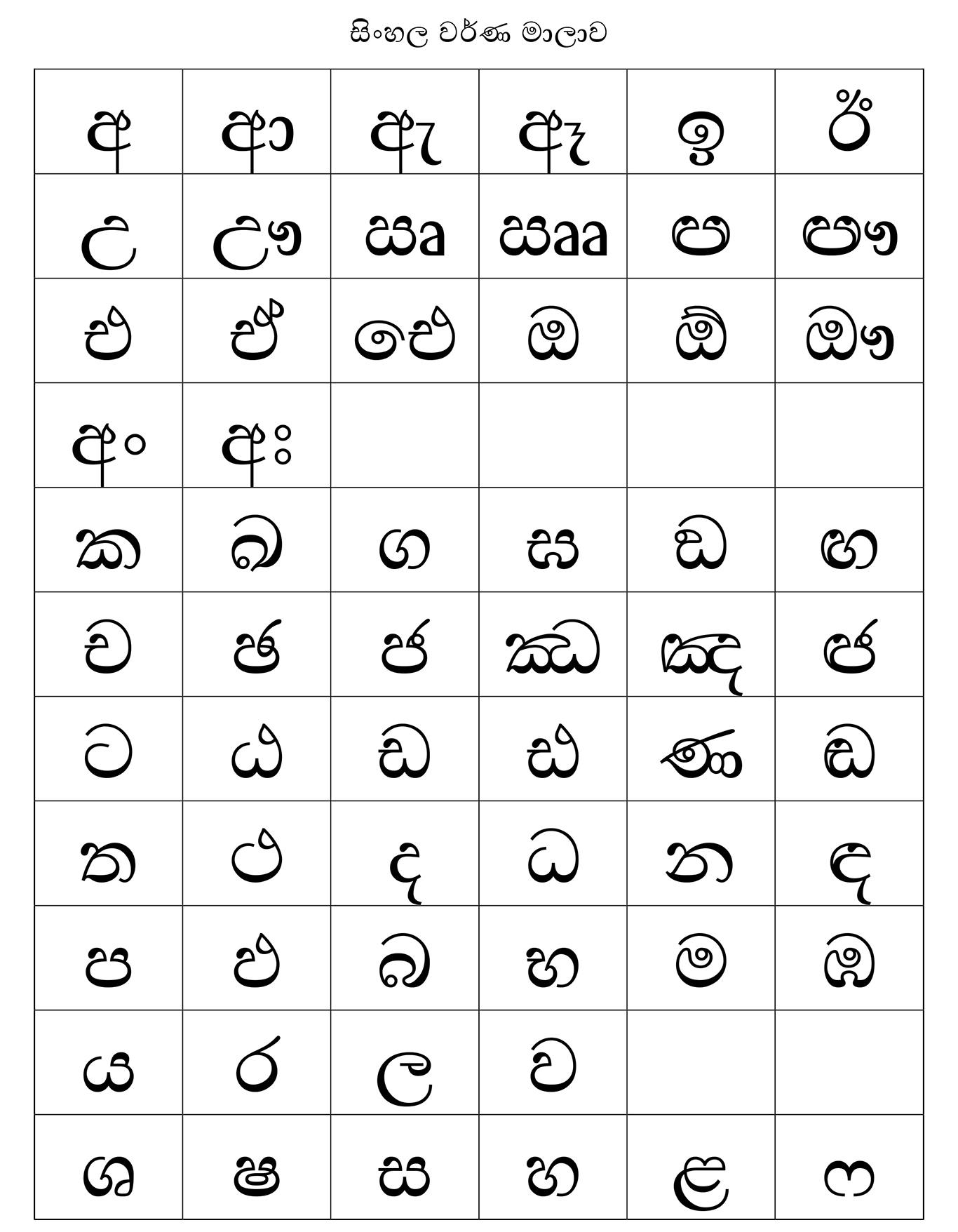|
Jeronis De Soysa
Gate Mudaliyar Jeronis de Soysa (19 April 1797 – 28 May 1862) was a pioneering Ceylonese entrepreneur and philanthropist. He was a pioneer coffee planter and an industrialist who became the wealthiest Ceylonese of the 19th century by establishing the largest native commercial enterprise of the era. He was instrumental in the establishment of the first Ceylonese bank and is often referred to as a father of private enterprise in British Ceylon. He was the first Mudaliyar to be elevated in recognition of his philanthropy.The History of Sri Lanka By Patrick Peebles, p.59 (Greenwood) [...More Info...] [...Related Items...] OR: [Wikipedia] [Google] [Baidu] |
Gate Mudaliyar
Mudali (or Mudaliyar) was a colonial title and office in Ceylon (now Sri Lanka) which was part of the native headman system. The Portuguese colonials created the Mudaliyar class in the 17th century by enlisting natives of different castes from the coastal areas. The Dutch continued the practice of the Portuguese. This class used the ''Mudali'' as a hereditary title, however the British re-established a Mudaliyar class, with appointments that had the title of Mudali, this process was stopped in the 1930s when the Native Department of the British government of Ceylon was closed down. All official and titular appointments of Mudaliyars were made by the Governor of Ceylon. Appointments were non-transferable and usually hereditary, made to locals from wealthy influential families loyal to the British Crown. The members of this group formed a unique social group called the Sri Lankan Mudaliyars and associated with older Radala caste. At present, the post of Court Mudliar remain in ... [...More Info...] [...Related Items...] OR: [Wikipedia] [Google] [Baidu] |
Ceylonese Mudaliyars
Mudali (or Mudaliyar) was a colonial title and office in Ceylon (now Sri Lanka) which was part of the native headman system. The Portuguese colonials created the Mudaliyar class in the 17th century by enlisting natives of different castes from the coastal areas. The Dutch continued the practice of the Portuguese. This class used the ''Mudali'' as a hereditary title, however the British re-established a Mudaliyar class, with appointments that had the title of Mudali, this process was stopped in the 1930s when the Native Department of the British government of Ceylon was closed down. All official and titular appointments of Mudaliyars were made by the Governor of Ceylon. Appointments were non-transferable and usually hereditary, made to locals from wealthy influential families loyal to the British Crown. The members of this group formed a unique social group called the Sri Lankan Mudaliyars and associated with older Radala caste. At present, the post of Court Mudliar remain in ... [...More Info...] [...Related Items...] OR: [Wikipedia] [Google] [Baidu] |
Sunday Observer (Sri Lanka)
''Sunday Observer'' is a weekly English-language newspaper in Sri Lanka, published on Sundays. The ''Sunday Observer'' and its sister newspapers the '' Daily News'', ''Dinamina'', ''Silumina'' and ''Thinakaran'' are published by Associated Newspapers of Ceylon Limited (Lake House), a government-owned corporation. The paper, which was established in the present-day format in 1928, has roots that date back to 1834 when Sri Lanka was under the British rule. It is the oldest Sri Lankan newspaper in circulation apart from the ''Government Gazette''. The current Editor is Dharisha Bastians. History Origins The British captured the coastal areas of Sri Lanka in 1796 and had consolidated their power throughout the island by 1818. In 1829 the Colonial Office appointed the Colebrooke-Cameron Commission to evaluate the administration of the country under the Governor of Ceylon, Edward Barnes, and to recommend reforms. The commission's recommendations, presented in 1833, marked the begi ... [...More Info...] [...Related Items...] OR: [Wikipedia] [Google] [Baidu] |
Astrology
Astrology is a range of Divination, divinatory practices, recognized as pseudoscientific since the 18th century, that claim to discern information about human affairs and terrestrial events by studying the apparent positions of Celestial objects in astrology, celestial objects. Different cultures have employed forms of astrology since at least the 2nd millennium BCE, these practices having originated in Calendrical calculation, calendrical systems used to predict seasonal shifts and to interpret celestial cycles as signs of divine communications. Most, if not all, cultures have attached importance to what they observed in the sky, and some—such as the Hindu astrology, Hindus, Chinese astrology, Chinese, and the Maya civilization, Maya—developed elaborate systems for predicting terrestrial events from celestial observations. Western astrology, one of the oldest astrological systems still in use, can trace its roots to 19th–17th century BCE Mesopotamia, from where it spr ... [...More Info...] [...Related Items...] OR: [Wikipedia] [Google] [Baidu] |
Sinhala Language
Sinhala ( ; , ''siṁhala'', ), sometimes called Sinhalese (), is an Indo-Aryan languages, Indo-Aryan language primarily spoken by the Sinhalese people of Sri Lanka, who make up the largest ethnic group on the island, numbering about 16 million. Sinhala is also spoken as the first language by other ethnic groups in Sri Lanka, totalling about 2 million people as of 2001. It is written using the Sinhala script, which is a Brahmic scripts, Brahmic script closely related to the Grantha script of South India. Sinhala is one of the official and national languages of Sri Lanka. Along with Pali, it played a major role in the development of Theravada, Theravada Buddhist literature. The early form of the Sinhala language, is attested as early as the 3rd century BCE. The language of these inscriptions with long vowels and aspirated consonants is a Prakrit similar to Magadhi, a regional associate of the Middle Indian Prakrits that has been used during the time of the Buddha. The closest ... [...More Info...] [...Related Items...] OR: [Wikipedia] [Google] [Baidu] |
Temple
A temple (from the Latin ) is a building reserved for spiritual rituals and activities such as prayer and sacrifice. Religions which erect temples include Christianity (whose temples are typically called churches), Hinduism (whose temples are called Mandir), Buddhism, Sikhism (whose temples are called gurudwara), Jainism (whose temples are sometimes called derasar), Islam (whose temples are called mosques), Judaism (whose temples are called synagogues), Zoroastrianism (whose temples are sometimes called Agiary), the Baha'i Faith (which are often simply referred to as Baha'i House of Worship), Taoism (which are sometimes called Daoguan), Shinto (which are sometimes called Jinja), Confucianism (which are sometimes called the Temple of Confucius), and ancient religions such as the Ancient Egyptian religion and the Ancient Greek religion. The form and function of temples are thus very variable, though they are often considered by believers to be, in some sense, the "house" of ... [...More Info...] [...Related Items...] OR: [Wikipedia] [Google] [Baidu] |
Daily News (Sri Lanka)
The ''Daily News'' is an English-language newspaper in Sri Lanka. It is now published by the Associated Newspapers of Ceylon Limited (Lake House), a government-owned corporation. The newspaper commenced publishing on 3 January 1918. D. R. Wijewardena was its founder. The present-day newspaper is written as a broadsheet, with photographs printed both in color and black and white. Weekday printings include the main section, containing news on national affairs, international affairs, business, political analysis, sports, editorials and opinions. Every Thursday issue a free supplement in a tabloid paper called "Wisdom". In addition, the ''Daily News'' also provides ''The Sri Lanka Gazette'' as a supplement on every Friday. The current editor-in-chief of the daily news is Lalith Allahakkoon. Since its founding, the ''Daily News'' has been housed and printed in the historic, colonial-era Lakehouse Building, adjacent to Beira Lake, in the Fort district of Colombo. During the 2018 ... [...More Info...] [...Related Items...] OR: [Wikipedia] [Google] [Baidu] |
Parakrama Bahu VI
Parâkramabâhu VI (1410/1412/1415–1467) was a king in the Sri Lankan kingdom of Kotte. He is the last great king in Sri Lanka who managed to unite the island under one flag. His rule is famous for the political stability which he maintained in that time period and the thriving of literature, especially poetry. Classical literature (prose and verse) as well as many rock inscriptions and royal grant letters (patent letters, ''sannas'') have been found, rendering much information pertaining to this period. Early life His father was Lameni Jayamahalena, and his mother was Sunethra Maha Devi. If so, he is the grandson of Parakramabahu V, who was Savulu Vijayabahu's son. Savulu Vijayabahu was the fifth to go by the name Vijayabahu. Another scholar states that Jayamahalena was the grandfather of Parakramabahu VI. However, he is supposed to belong to the family, that came after Parakramabahu V. Reign Kingship Parakramabahu VI was allied with Ming China who forcibly dethroned Alake ... [...More Info...] [...Related Items...] OR: [Wikipedia] [Google] [Baidu] |
Upulvan
Upulvan ( si, උපුල්වන් දෙවියෝ, pi, Uppalavanna; Sanskrit: Utpalavarna), also known as Vishnu (''Vishnu deviyo'') is a guardian deity (Pali: Khettapala; Sanskrit: Kshetrapala) of Sri Lanka. Sri Lankan Buddhists believe him also as a protector of the Buddhism in the country. The name Upulvan depicts his body colour which means "blue water lily coloured". The cult of Upulvan started during the medieval period in Sri Lanka. According to the local lore and legend, Upulvan is the god whom the Buddha entrusted with the guardianship of Sri Lanka and Buddha Śāsana of the country. Historical accounts and legends According to the Sri Lankan chronicles Dipavamsa and Mahavamsa, north Indian prince Vijaya and his seven hundred followers were blessed by god Upulvan upon their arrival to Sri Lanka in 543 BC. The second appearance of god Upulvan in literary sources occurs in the 7th and 8th centuries and again after a gap of several centuries his name reappears ... [...More Info...] [...Related Items...] OR: [Wikipedia] [Google] [Baidu] |
The Island (Sri Lanka)
''The Island'' is a daily English-language newspaper in Sri Lanka. It is published by Upali Newspapers. A sister newspaper of ''Divaina'', ''The Island'' was established in 1981. Its Sunday edition, ''Sunday Island'', commenced publishing in 1991. The daily newspaper currently has a circulation of 70,000 and its Sunday edition, 103,000 per issue. Upali Wijewardene was its founder. Its political leaning is pro- Sri Lanka Freedom Party. See also *List of newspapers in Sri Lanka The List of newspapers in Sri Lanka lists every daily and non-daily news publication currently operating in Sri Lanka. The list includes information on whether it is distributed daily or non-daily, and who publishes it. For those newspapers that ar ... References External links * Daily newspapers published in Sri Lanka English-language newspapers published in Sri Lanka Publications established in 1981 Upali Newspapers {{SriLanka-newspaper-stub ... [...More Info...] [...Related Items...] OR: [Wikipedia] [Google] [Baidu] |
Muhandiram
Muhandiram ( si, මුහන්දිරම්, ta, முகாந்திரம்) was a post in the native headmen system in the lower-country (coastal districts) of Ceylon (Sri Lanka) during the colonial era. It was awarded as a title of honor until suspension of Ceylonese honours in 1956. History The post originated from the Portuguese colonial administration in the 17th century by enlisting natives of different castes from the coastal areas. The post continued throughout the Dutch East India Company administration and the British colonial administration until the abolition of the native department in the 1930s. It was awarded as a title of honor until the suspension of Celonese honors in 1956. During the British administration official and titular appointments were made by the government agent of the district to a korale which was a revenue district; a muhandiram had several vidane arachchies that may come under his supervision. He would report to the mudaliyar of t ... [...More Info...] [...Related Items...] OR: [Wikipedia] [Google] [Baidu] |









.jpg)